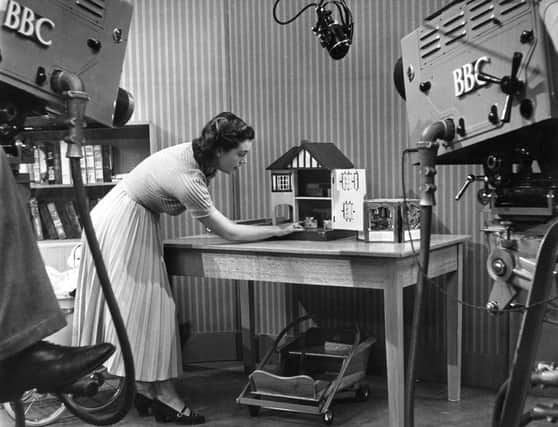Helping to open the lines of conversation


The broadcaster is exploring a number of ways its extensive archive can be used for the public good and asked Dundee’s Dr Norman Alm to assist them as a result of his extensive research into the benefits of reminiscence work.
The Dundee-St Andrews CIRCA (Computer Interactive Reminiscence and Conversation Aid) Project team, of which Dr Alm is a member, have been working together for some time on using technology to support people with dementia, and have made several important discoveries about how such a system should work.
Advertisement
Hide AdAdvertisement
Hide AdThey advised the BBC on how to make best use of the material from the perspectives of psychology, design, and software engineering. The resulting online platform that the BBC developed, RemArc, stimulates and supports conversations between individuals with dementia and their carers.
Dr Alm said, “One of the most distressing aspects of dementia is the inability to carry out even the simplest conversation with a relative or carer. With depleted short-term memory people with dementia tend to repeat themselves endlessly and are unable to participate in a conversation. However, their long-term memories can be relatively well preserved. If the person’s long-term memories can be prompted, they are able to enjoy relating events from their past.
“Although it is possible for someone who is well-acquainted with the person’s past to guide them towards their long-term memories and support them in telling their stories, it is hard work. It is very difficult for relative or carer to have a relaxed and mutually enjoyable conversation with the person who has dementia.
“We have devised ways in which the person with dementia and their carers can again enjoy a conversation, by having easy access to a carefully-designed structure holding a rich array of reminiscence content.”
Advertisement
Hide AdAdvertisement
Hide AdRemArc draws on photos, music, spoken word recordings and short film clips from 1940-1980 in the first instance, although this time window will move along over the decades as the idea is to have material from the youth and young adulthood of people who have dementia now. It is presented in a clear, simple and random way that acts as the stimulus for a natural conversation, including surprising twists and turns.
With a wide range of choices to capture the person’s interests, the individual who has dementia can choose their own conversational path triggered by what is on the screen.
Carers are encouraged to offer as many choices as possible to the person with dementia and to let the patient choose their own conversational path whether it has anything to do with what is on the screen or not. A typical session lasts around 20 minutes and proves to be fun and empowering for both the person with dementia and the carer.
The number of people in the UK over the age of 60 will increase by 50 per cent by the year 2030 and the growing numbers of people with dementia is of critical concern. This age-related condition involves gradual but debilitating loss of cognitive abilities, particularly short term memory. Research efforts are on-going, but there is currently no way to halt or reverse dementia.
Advertisement
Hide AdAdvertisement
Hide AdDr Alm worked with Dundee colleagues Gary Gowans, Jim Campbell, Phillip Vaughan and Dr Richard Dye, while the St Andrews team included Professor Arlene Astell and Dr Maggie Ellis. Their research showed that personal content for their system is not necessary and generic content presented randomly works better.
Dr Ellis said: “The use of personal material, e.g. family photographs often led to carers having expectations of what they thought the person with dementia ‘should’ be able to remember. Random presentation of generic material from the past meant that the person with dementia wasn’t expected to recognise them and often had the effect of stimulating new stories every time. These included recollections that no one had heard before and which resulted in mutually satisfying conversations.”
More than 1500 items from the archive have initially been made available on RemArc and the BBC have made the software behind it open-source, meaning that archives and museums around the world could provide a similar service using their own material.
Jake Berger, from the BBC’s Archive Development team, said: “We wanted to achieve a number of things with RemArc. Firstly, and most importantly, to use BBC archive material to benefit those of our audience members who have dementia, their families and their carers. We hope that amongst the 1500 items from our archives that are available on RemArc, there will be something that triggers a reminiscence for everyone.
Advertisement
Hide AdAdvertisement
Hide Ad“Dr Alm and colleagues from the Universities of Dundee and St Andrews have spent many years working in the area and we benefited hugely from their knowledge, experience and passion.”
RemArc can be accessed here bbc.co.uk